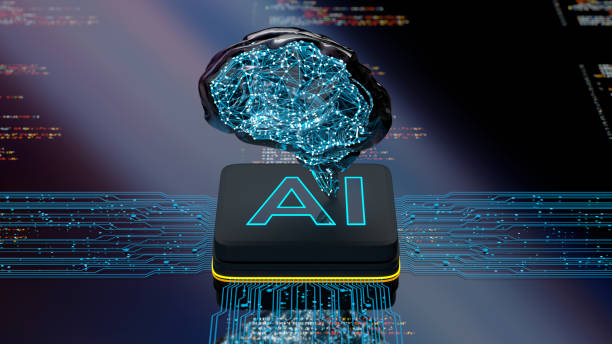What is an AI Assistant and How Does It Work?
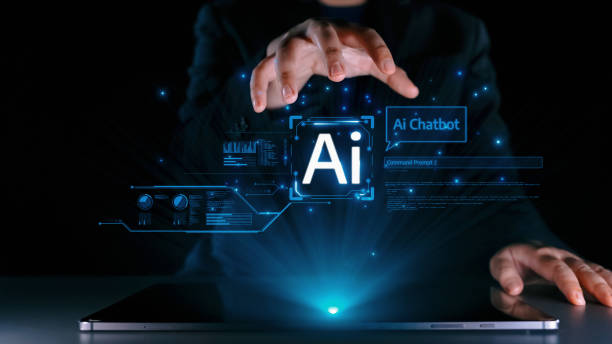
An Artificial Intelligence Assistant (AI Assistant) is a computer program that uses Artificial Intelligence (AI) to perform various tasks at the user’s request.
These tasks can include answering questions, providing information, performing calculations, controlling other devices, and even creating creative content.
The basic working principle of an AI assistant is based on machine learning and Natural Language Processing (NLP).
In this way, it analyzes vast amounts of data and identifies patterns to correctly respond to user requests.
AI assistants usually interact with users via voice (like Siri and Alexa) or text (like chatbots).
When a user asks a question or gives a command, the AI assistant processes it, understands the user’s intent, and then provides the best answer or action.
This process involves various stages, including speech recognition (for voice assistants), semantic analysis, database searching, and generating an appropriate response.
AI assistants have applications in various fields, including:
- Customer Service: Answering frequently asked questions, guiding problem-solving, and providing technical support.
- Task Management: Setting reminders, scheduling meetings, and managing to-do lists.
- Information Retrieval: Finding information the user needs on the internet and providing a summary of the results.
- Entertainment: Playing music, running podcasts, and delivering news.
- Smart Device Control: Turning lights on and off, adjusting temperature, and locking doors.
With technological advancements, AI assistants are becoming smarter and more efficient day by day and play an increasingly important role in our daily lives.
The ultimate goal is to create an assistant that can fully understand user needs and respond to them automatically and intelligently.
AI is a transformative technology.
Did you know that 85% of customers check your company’s website before any interaction?
With Rasaweb, build a corporate website worthy of your reputation.
✅ Increase customer credibility and trust
✅ Attract high-quality leads
⚡ Get free website design consultation
Advantages and Disadvantages of Using AI Assistants

Using AI assistants has several advantages and disadvantages, which we will examine below:
Advantages:
- Increased Productivity: AI assistants can automate many repetitive and time-consuming tasks, allowing users to focus on more important work.
- Easy Access to Information: AI assistants can quickly gather and present information users need from various sources.
- Convenience and Ease of Use: AI assistants are very easy to use and do not require specific technical knowledge.
- 24/7 Responsiveness: AI assistants are available 24 hours a day, 7 days a week, and can respond to user questions and requests.
- Reduced Errors: AI assistants make fewer mistakes than humans and can perform tasks with higher accuracy.
- Personalization: Many AI assistants can be personalized based on each user’s needs and preferences.
Disadvantages:
- Privacy: The use of AI assistants can raise privacy concerns, as these assistants collect and store users’ personal information.
- Dependency: Excessive use of AI assistants can lead to dependency and reduce users’ cognitive abilities.
- Errors and Mistakes: AI assistants may still make errors and provide incorrect or irrelevant responses.
- Cost: Some AI assistants are paid, and their use requires a fee.
- Lack of Emotional Understanding: AI assistants cannot understand human emotions and may therefore provide inappropriate responses in some situations.
Despite the mentioned disadvantages, the benefits of using AI assistants are numerous, and this technology can significantly improve our lives and work.
AI assistants are rapidly advancing.
Types of AI Assistants and Their Applications

AI assistants come in various types, each with its specific applications.
Some of the most popular types of AI assistants include:
- Voice Assistants: These assistants interact with users via voice and can answer questions, execute commands, and provide information.
Examples of voice assistants include Siri, Alexa, Google Assistant, and Cortana. - Chatbots: Chatbots interact with users via text and can answer questions, provide guidance, and offer customer service.
Chatbots are typically used on websites, messaging apps, and social media. - Virtual Assistants: Virtual assistants are a combination of voice assistants and chatbots and can interact with users via voice or text.
Virtual assistants are usually used for more complex tasks and to provide personalized services. - Enterprise Assistants: These assistants are designed to help employees perform their tasks.
They can assist employees in finding information, scheduling meetings, managing emails, and performing other administrative duties. - Medical Assistants: These assistants are designed to help doctors and nurses provide healthcare.
They can assist doctors in diagnosing illnesses, prescribing medications, and counseling patients.
AI assistants have applications in various fields.
Here are a few examples of AI assistant applications:
- Customer Service: Answering customer questions, providing technical support, and solving problems.
- Marketing and Sales: Lead generation, customer follow-up, and providing personalized offers.
- Human Resources: Recruitment, training, and employee performance management.
- Finance: Account management, budget forecasting, and fraud detection.
- Healthcare: Diagnosing illnesses, prescribing medications, and providing healthcare.
With technological advancements, the applications of AI assistants are expected to expand, and this technology will play an increasingly important role in our lives and work.
AI assistants are transforming industries.
| Name of Voice Assistant | Manufacturer Company | Applications |
|---|---|---|
| Siri | Apple | Answering questions, setting reminders, playing music |
| Alexa | Amazon | Controlling smart devices, online shopping, playing music |
| Google Assistant | Information search, setting reminders, controlling smart devices |
How to Choose the Right AI Assistant?

Choosing the right AI assistant can be challenging, as many options are available.
To select a suitable AI assistant, you should consider various factors, including:
- Your Needs: First and foremost, you should define your needs.
What tasks do you want to assign to the AI assistant? What kind of information do you want to receive from the AI assistant? - Your Budget: Some AI assistants are paid, and their use requires a fee.
Before choosing an AI assistant, you should consider your budget. - Compatibility: The AI assistant must be compatible with the devices and operating systems you use.
- Security and Privacy: The AI assistant must ensure your security and privacy.
- Features: The AI assistant should have features that are important to you.
For example, if you are looking for a voice assistant, you should pay attention to the assistant’s voice quality, speech recognition accuracy, and natural language capabilities. - User Reviews: Before choosing an AI assistant, read other user reviews.
These reviews can help you select a suitable AI assistant.
In addition to these factors, you should also note that AI assistants are constantly evolving, and new features are being added to them.
Therefore, before choosing an AI assistant, it is best to check the latest information about its features and capabilities.
By carefully reviewing your needs and the available options, you can choose a suitable AI assistant that will help you perform various tasks and increase your productivity.
AI assistants help you.
Is your current e-commerce website not generating the expected sales for you?
Rasaweb is an expert in professional e-commerce website design!
✅ An attractive and user-friendly site aimed at increasing sales
✅ High speed and security for an ideal shopping experience⚡ Get free online store design consultation with Rasaweb!
The Future of AI Assistants and Their Impact on Our Lives
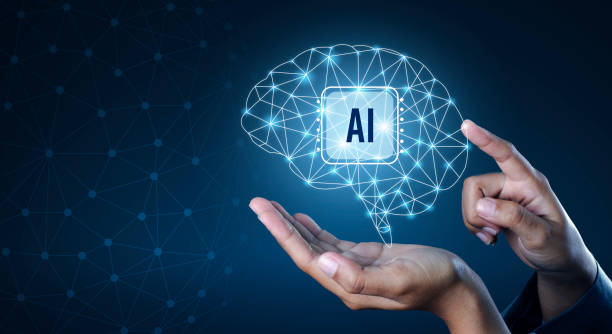
The future of AI assistants is very bright, and this technology is expected to play an increasingly important role in our lives.
With technological advancements, AI assistants will become smarter, more efficient, and more personalized.
In the future, AI assistants will be able to perform more complex tasks, understand human emotions, and automatically interact with their surroundings.
Some predictions about the future of AI assistants include:
- Integration with Other Technologies: AI assistants will integrate with other technologies such as the Internet of Things (IoT), Augmented Reality (AR), and Virtual Reality (VR), creating new experiences for users.
- Greater Personalization: AI assistants will be able to understand each user’s needs and preferences more accurately and provide more personalized services.
- Autonomous Learning: AI assistants will be able to learn autonomously from their experiences and improve their performance.
- Collaboration with Humans: AI assistants will increasingly collaborate with humans and help them perform various tasks.
- Expansion of Applications: The applications of AI assistants will expand, and this technology will be used in various fields such as healthcare, education, transportation, and entertainment.
The impact of AI assistants on our lives will be immense.
This technology can help us perform various tasks, increase our productivity, facilitate our access to information, and improve our quality of life.
However, we must also note that the use of AI assistants can raise concerns about privacy, dependency, and security.
Therefore, we must use this technology responsibly and consciously.
AI assistants will change our world.
Challenges in Developing and Using AI Assistants

The development and use of AI assistants face numerous challenges.
Some of the most important of these challenges include:
- Accuracy and Correctness: AI assistants must be able to provide accurate and correct information and avoid errors.
This is especially crucial in sensitive areas like healthcare and finance. - Privacy and Security: AI assistants collect and store users’ personal information.
Therefore, it must be ensured that this information is securely maintained and misuse is prevented. - Bias and Discrimination: AI algorithms can exhibit bias and discrimination.
This can lead to the provision of unfair or discriminatory responses. - Natural Language Understanding: Understanding natural language is a major challenge for AI assistants.
AI assistants must be able to comprehend human language, even if it is informal, complex, or contains errors. - Cost: Developing and using AI assistants can be costly.
This can hinder access to this technology for many individuals and organizations. - Social Acceptance: Some individuals may resist the use of AI assistants.
This can stem from concerns about job loss, privacy, or security.
To overcome these challenges, concerted efforts are needed from researchers, developers, policymakers, and users.
Through collaboration and innovation, we can develop AI assistants that are accurate, secure, fair, and trustworthy.
AI assistants are still in their early stages.
The Impact of AI Assistants on Jobs and the Job Market

The impact of AI assistants on jobs and the labor market is a complex and controversial topic.
On the one hand, AI assistants can automate many repetitive and time-consuming tasks, which can lead to increased productivity and reduced costs.
On the other hand, AI assistants can replace some human jobs, which can lead to unemployment and increased inequality.
Studies have shown that AI assistants can have a significant impact on the job market.
Some jobs most at risk of being replaced by AI assistants include:
- Office and Administrative Jobs: AI assistants can automate many office and administrative tasks, such as data entry, document processing, and answering phones.
- Manufacturing Jobs: AI assistants can be used in factories and other production environments to perform various tasks such as assembling parts, quality control, and product packaging.
- Transportation Jobs: Self-driving vehicles and other intelligent transportation systems can replace truck, taxi, and bus drivers.
- Customer Service Jobs: Chatbots and other AI systems can be used to answer customer questions, provide technical support, and solve problems.
However, AI assistants can also create new job opportunities.
For example, the development, implementation, and maintenance of AI assistants require skilled professionals in various fields such as computer science, software engineering, and data mining.
Moreover, AI assistants can help humans perform more complex and creative tasks, which can lead to the creation of new jobs that do not currently exist.
For example, here you can see 10 AI websites and their applications.
AI assistants can revolutionize the job market.
| Type of Impact | Description | Examples |
|---|---|---|
| Job Replacement | Automation of tasks and replacement of human labor | Data entry clerks, phone operators |
| Creation of New Jobs | Need for specialists to develop and maintain AI | Machine learning engineers, data analysts |
| Transformation of Job Nature | Change in tasks and need for new skills | Marketing managers using AI data analysis |
Solutions for Responsible and Ethical Use of AI Assistants
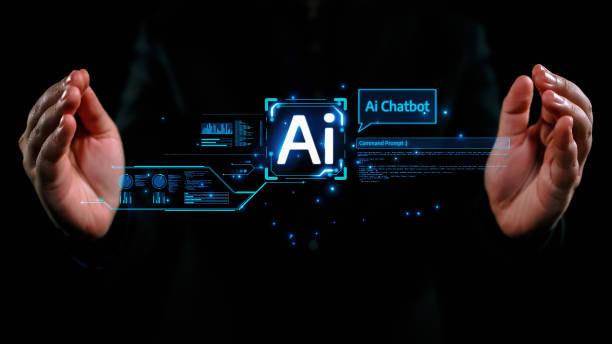
Responsible and ethical use of AI assistants is crucial to prevent misuse of this technology and ensure its benefits for all members of society.
Some solutions for the responsible and ethical use of AI assistants include:
- Transparency: There must be transparency regarding how AI assistants work and the algorithms they use.
This helps users better understand the technology and make more informed decisions. - Privacy: User privacy must be protected when using AI assistants.
Personal user data must be securely stored, and misuse must be prevented. - Fairness: AI assistants should not exhibit bias or discrimination.
AI algorithms should be designed to provide fair and unbiased responses. - Accountability: It must be determined who is responsible for decisions made by AI assistants.
If an AI assistant makes an incorrect decision, it must be clear who is accountable. - Education: Users should be educated on how to use AI assistants responsibly and ethically.
Users must be aware of the risks and benefits of this technology and be able to use it correctly. - Oversight: The performance of AI assistants must be monitored to prevent misuse of this technology.
If an AI assistant performs unethical or illegal behavior, necessary actions must be taken to correct it.
By adhering to these solutions, we can use AI assistants responsibly and ethically and ensure their benefits for all members of society.
This technology has great potential to improve our lives, but we must use it correctly.
Disappointed with your e-commerce site’s low conversion rate? Rasaweb transforms your e-commerce site into a powerful tool for attracting and converting customers!
✅ Significant increase in visitor-to-buyer conversion rate
✅ Unparalleled user experience to increase customer satisfaction and loyalty⚡ Get free consultation from Rasaweb!
The Most Popular AI Assistants on the Market
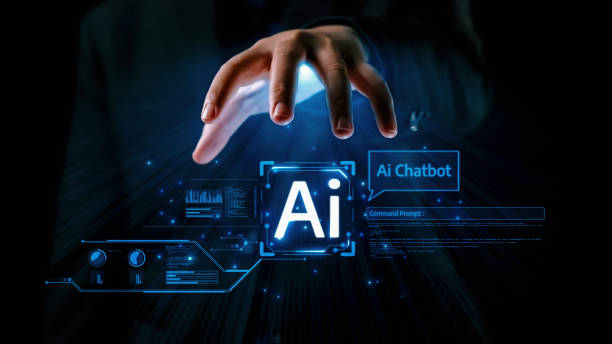
Currently, numerous AI assistants are available on the market, each with its own unique features and capabilities.
Some of the most popular AI assistants include:
- Siri: Siri is Apple’s voice assistant, available on iOS, macOS, and watchOS devices.
Siri can answer questions, execute commands, provide information, and interact with other apps and services. - Alexa: Alexa is Amazon’s voice assistant, available on Echo devices and other smart devices.
Alexa can answer questions, execute commands, play music, read news, and interact with other smart devices. - Google Assistant: Google Assistant is Google’s voice assistant, available on Android, iOS, and other smart devices.
Google Assistant can answer questions, execute commands, provide information, and interact with other apps and services. - Microsoft Cortana: Cortana is Microsoft’s voice assistant, available on Windows, Android, and iOS devices.
Cortana can answer questions, execute commands, provide information, and interact with other apps and services. - Samsung Bixby: Bixby is Samsung’s voice assistant, available on Galaxy devices and other smart devices.
Bixby can answer questions, execute commands, provide information, and interact with other apps and services.
Each of these AI assistants has its own advantages and disadvantages.
Choosing the best AI assistant for you depends on your needs, preferences, and the devices you use.
AI assistants are available from different brands.
Important Tips for Protecting Privacy When Using AI Assistants
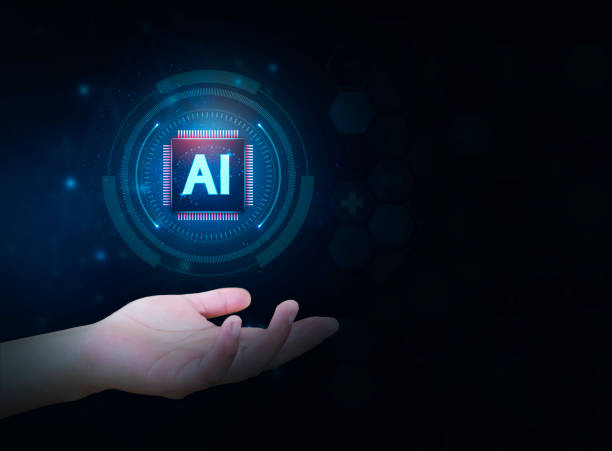
Protecting privacy when using AI assistants is very important, as these assistants collect and store users’ personal information.
To protect your privacy when using AI assistants, you can follow these tips:
- Check Privacy Settings: In your AI assistant’s settings, you can control its level of access to your personal information.
For example, you can specify what information your AI assistant can access from your contacts, calendar, and location. - Clear Your Activity History: AI assistants usually store your activity history.
You can periodically clear your activity history to prevent the collection of your personal information. - Use a Strong Password: Use a strong password for your AI assistant account to prevent unauthorized access to your personal information.
- Be Careful When Sharing Information: Be careful when sharing your personal information while using an AI assistant.
Avoid providing sensitive information such as credit card numbers, passwords, and identification details. - Install Security Updates: Regularly install security updates to protect against security vulnerabilities that may exist in the AI assistant.
- Use Privacy-Focused AI Assistants: Some AI assistants specifically focus on protecting user privacy.
Before choosing an AI assistant, research whether it prioritizes your privacy.
By following these tips, you can protect your privacy when using AI assistants and prevent the misuse of your personal information.
AI assistants and privacy are two important topics.
Frequently Asked Questions
| Question | Answer |
|---|---|
| What is an AI assistant? | An AI assistant is a software program that uses artificial intelligence to perform various tasks for users, such as answering questions, setting reminders, playing music, and managing calendars. |
| What are some of the most famous AI assistants? | Some of the most famous AI assistants include Apple’s Siri, Google Assistant, Amazon’s Alexa, and Microsoft’s Cortana. |
| How does an AI assistant work? | These assistants use Natural Language Processing (NLP) to understand a user’s voice or text commands, and machine learning to improve performance and personalize responses. |
| What are the main applications of an AI assistant? | Main applications include setting alarms and reminders, playing music and podcasts, answering general questions, sending messages, making calls, controlling smart home devices, and providing weather or traffic information. |
| Can AI assistants speak with different accents? | Yes, many modern AI assistants have the ability to recognize and generate speech with various accents and languages. |
| What are the differences between an AI assistant and a chatbot? | An AI assistant is usually more comprehensive and can perform various tasks beyond answering text-based questions (such as controlling devices). Chatbots are primarily designed for text conversations on websites or messaging applications. |
| Is it safe to use an AI assistant? | Companies strive to ensure data security, but concerns exist regarding privacy and the storage of voice data. Users should check their privacy settings. |
| What will be the future of AI assistants? | In the future, AI assistants are expected to be smarter, more predictive, and have greater integration capabilities with daily life and other devices, enabling them to perform more complex tasks. |
| How can I activate an AI assistant? | They are usually pre-installed on smartphones and smart home devices. You can activate them by saying “Hey Siri”, “Ok Google” or “Alexa” and then giving your command. |
| Can an AI assistant help me with learning? | Yes, it can help with learning by providing information, defining words, translating texts, and even solving math problems. It can also play educational podcasts for you. |
And other services of Rasaweb Advertising Agency in the field of advertising
- Smart Brand Identity: An effective tool for analyzing customer behavior with precise audience targeting.
- Smart SEO: An exclusive service for boosting website traffic based on intelligent data analysis.
- Smart Reportage: A novel service for enhancing campaign management through marketing automation.
- Smart Content Strategy: A novel service for enhancing campaign management through custom programming.
- Smart Digital Advertising: A combination of creativity and technology for analyzing customer behavior through custom programming.
And over a hundred other services in the field of internet advertising, advertising consultation, and organizational solutions
Internet Advertising | Advertising Strategy | Advertorial
Sources
Comprehensive Guide to AI Assistants on FarnetReview of AI Assistant Technology on ZoomitThe Future of Work with AI on IRNAPersonal AI Assistants on YJC News
? If you are looking to gain visibility and significant growth for your business in the digital space, Rasaweb Afarin Digital Marketing Agency, specializing in website design with modern user interfaces, SEO, and comprehensive online marketing strategies, is your reliable partner.
📍 Tehran, Mirdamad Street, next to Bank Markazi, Southern Kazeroon Alley, Ramin Alley, No. 6

